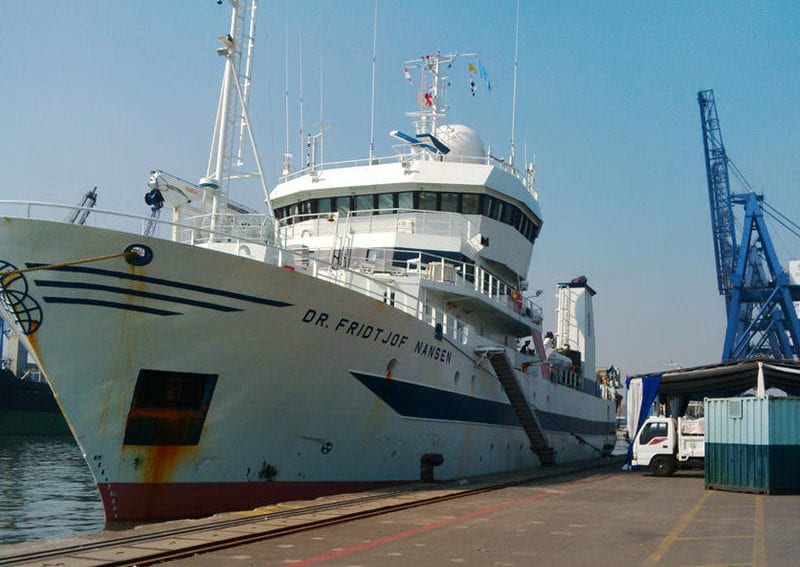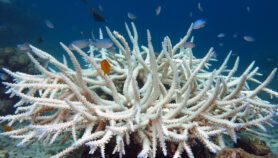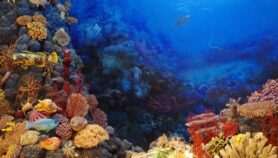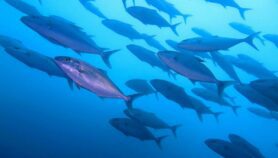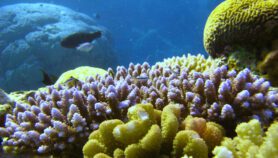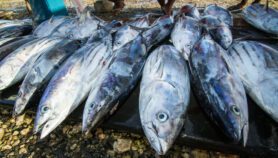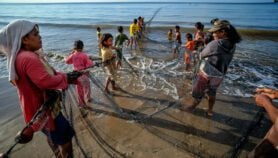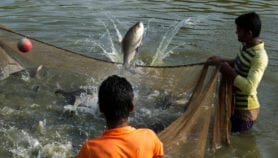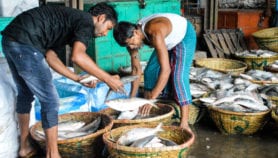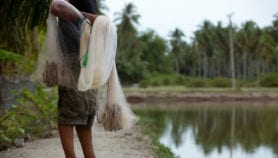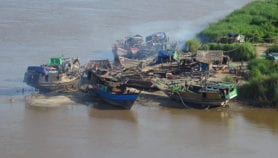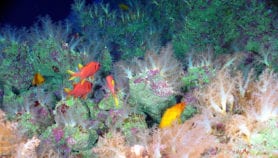Send to a friend
The details you provide on this page will not be used to send unsolicited email, and will not be sold to a 3rd party. See privacy policy.
[JAKARTA] A team of international scientists is sailing the Indian Ocean to study the marine ecology and fisheries potential of the waters in the region.
The team of 16 marine researchers from 11 countries set sail on 26 June from Tanjung Priuk, Jakarta, aboard R/V Dr. Fridtjof Nansen, a Norwegian research vessel.
The project is organised by the FAO ([UN’s] Food and Agriculture Organization) in close collaboration with Norway’s Institute of Marine Research (IMR) and funded by the Norwegian Agency for Development Cooperation.
The vessel will dock in Port Louis, Mauritius, on 16 July for the second leg of its journey to carry out research around the waters of Madagascar and the southern plateau of the Mascarene before continuing on to South Africa on 10 August.
The survey trip is in preparation for the 2nd International Indian Ocean Expedition that will start in December 2015 and is expected to be completed in 2018. It comes 50 years after the first expedition was conducted between 1959-1965 to mine oceanographic and fisheries data in the Indian Ocean.
Reidar Toresen, the survey’s lead scientist from Norway’s IMR, says the researchers will study how the Indian Ocean gyre affects the ecosystem and fisheries. Gyres are large area with rotating ocean currents and where marine debris and plastics tend to accumulate.
“The main goal of this expedition is to study the ecology of the high seas in the southern Indian Ocean. We’ll survey the gyre for ecological factors such as oceanic features — temperatures, oxygen, chlorophyll and biological processes like plankton production and fish distribution. We also want to survey the amount of plastic particles in the surface,” adds Toresen.
Mark Smulders, FAO representative in Indonesia, notes that the ocean provides a vital source of nutritious food, employment, recreation, trade and economic well-being for millions of people around the world as well as other goods and services that are vital for the very existence of life on earth.
“We expect that the project will strengthen regional efforts to reduce poverty and create conditions to assist in the achievement of food security through the development of sustainable fisheries management,” says Smulders.
The second exploration will use the latest ocean exploration technology. According to its Twitter hashtag #EAFNansen, the team has dropped a fleet of floating robots from Australia’s Commonwealth Scientific and Industrial Research Organisation in the Indian Ocean to analyse dissolved oxygen, organic matter and other biological particles.
This article has been produced by SciDev.Net's South-East Asia & Pacific desk.


